Teachers' Association Raises Alarm Over Low Teacher Salaries In Iran
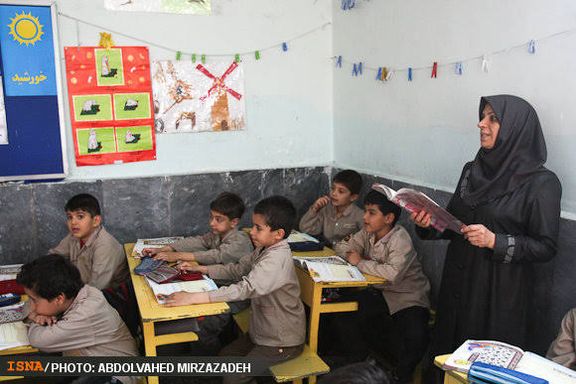
Iran's Teachers' Association says that a third of the country's educators earn less than $200 a month and has brought attention to their financial challenges.

Iran's Teachers' Association says that a third of the country's educators earn less than $200 a month and has brought attention to their financial challenges.
The Association revealed that 32% of teachers in Iran earn less than $200 in monthly salary, contradicting minister Education Minister Reza Morad Sahraie's claim that no teacher receives a salary below this amount.
Citing salary slips from a comprehensive sample of three thousand teachers, the Teachers' Association highlighted the significant number of educators struggling with inadequate compensation. The data indicates that nearly one-third of teachers across the nation receive less than 100 million rials, which is equivalent to approximately $200.
Furthermore, the survey shed light on the broader spectrum of teacher salaries. A substantial 81% of educators reported earnings ranging from $110 to $300.
In response to the Minister's claims, the Teachers' Association voiced skepticism, stating, "It is plausible that the Minister's assertions are either untrue or indicative of a lack of control over the domain he oversees."
It is worth noting that Hossein Rasouli, an official from the Workers’ House, recently emphasized that the monthly minimum wage of less than $200 merely covers "nine days of a family's life." Rasouli further elaborated that the minimum monthly wage for workers in Iran falls short of eighty million rials (approximately $150 USD), emphasizing the ongoing economic challenges.
The issue of inadequate salaries is not new to Iran. Real incomes have struggled to keep pace with inflation since the establishment of the Islamic Republic in 1979. Earlier reports from mid-2022 highlighted a staggering 300% increase in rents in Tehran over the span of three years, further underscoring the economic pressures faced by citizens.
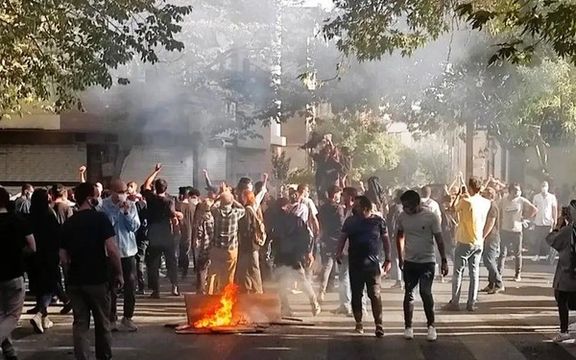
A senior aide to Iran's Supreme Leader asserts that the regime remains firmly entrenched in a fortress, guarded by a devoted religious group under all circumstances.
Gen. Yadollah Javani, formerly known as the Political Deputy to the IRGC Commander and presently serving as the Deputy for Political Affairs for Ali Khamenei within the IRGC, addressed a gathering aimed at "strengthening the Basij militia." He conveyed that the Israeli evaluation of the 2022 protests in Iran indicated their disregard for the potency, authenticity, and social deterrent capabilities of religious Iranians.
Entekhab website in Tehran quoted Javani at the gathering in Mashhad that the enemies wanted to sow despair among the Iranian people and officials and suggested that the government should free their minds from the clutches of the enemy.
The use of jargon in this context suggests that Javani was deeply affected by the extensive protests that occurred throughout Iran over a span of several months. Social media analysts have pointed out that the General appears to believe that the people supporting the current regime are a minority group and that they are surrounded by a larger opposition movement.
Javani's comment also sounded like a confession to the fact that the regime depends on this minority for its survival.
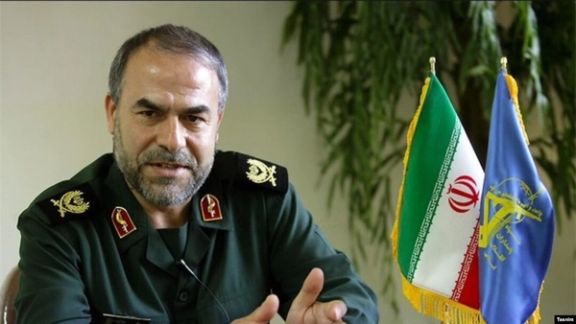
Meanwhile, borrowing Khamenei's idea of the "explanation jihad," Javani called for propagating the regime's narrative about the protests, mindless of the fact that this narrative may maintain the regime's current supporters in the "fortress," but it is unlikely to convince other Iranians to join them. There are also indications that as Iranian sociologists have been warning, some of those who are leaving Iran are disillusioned former regime supporters.
The IRGC General suggested that the regime should propagate former IRGC Qods Force Commander Qasem Soleimani's school of thought. However, no matter what Soleimani's school of thought was, what most Iranians remember about him are the stories of giving suitcases full of cash handouts to terrorist groups in the Middle East.
He went on to assert that following the collapse of the Soviet Union, the Islamic Republic effectively thwarted the United States' aspirations of global dominance. Javani further contended that the "Woman, Life, Freedom" movement aimed to cultivate animosity among Iranian youth towards individuals of religious faith.
Contrary to this, the prevailing viewpoint among a majority of pundits and politicians is that the government's inability to effectively address the nation's economic challenges served as a significant catalyst for the burgeoning opposition among the youth. This sentiment is compounded by the perception that the authorities are erecting various barriers that impede young Iranians from pursuing their preferred lifestyles.
Meanwhile, mirroring Javani's statement, another event highlighted the evident apprehension among Iranian officials as the anniversary of Mahsa Amini's death in custody in September 2022 draws near. In an interview, Deputy Judiciary Chief Sadeq Rahimi issued a warning, stating that Iranian intelligence agencies are prepared to identify individuals potentially inclined to participate in street protests in the upcoming days.
Rahimi particularly warned former detained protesters who were freed after serving some time in jail that their behavior will be scrutinized by security and intelligence officers.
Many of these individuals who were apparently pardoned by Khamenei, were arrested again after a few weeks and others, including the family members of those who were killed or blinded during the protests were arrested and jailed during the past few weeks.
Rahimi claimed without naming anyone or any country or presenting any evidence that "the enemies" are planning to disrupt peace and security in Iran during the coming weeks by provoking Iranian youths and creating problems for the people and the regime.
Neither Javani nor Rahimi addressed the core issues of economic challenges and constraints on social freedoms, which experts widely consider to be the primary driving forces behind the massive street protests by Iranians against the regime. These crucial factors have led millions to voice their discontent and take to the streets.
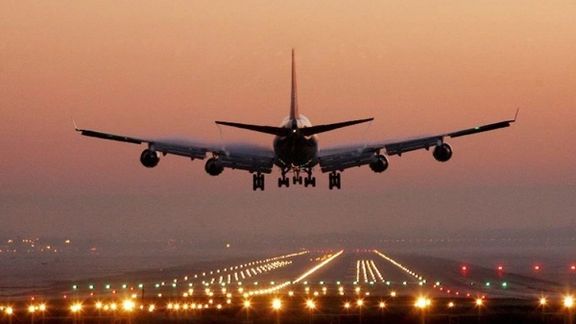
Two Iranian flights from Tehran and Mashhad to neighboring countries made emergency landings due to "technical issues," local media reports.
Tasnim News Agency reported that an Airbus flight operated by Qeshm Air, scheduled from Tehran to Istanbul on Saturday, was redirected back to the capital's international airport due to technical complications.
The Chief of Public Relations at Qeshm Air affirmed that the affected flight was re-schduled using a "backup aircraft" and assured Tasnim that "all passengers are safe and sound."
Tasnim, which is affiliated to the Revolutionary Guards, also disclosed that a Sepehran Airlines flight from Mashhad to Najaf, Iraq executed an emergency landing at the Hashemi Nejad Airport on Saturday.
Decades-long sanctions have inhibited Iran's ability to procure passenger aircraft and related equipment from international markets, leading to an aging national aviation fleet. Mohammad Mohammadi-Bakhsh, the Head of the Iranian Civil Aviation Organization, earlier revealed that among Iran's 330 registered planes, 139 are currently grounded. Some of these aircraft have been deemed unsuitable for return to service, raising concerns about accurately assessing the magnitude of the aviation crisis facing the country.
Iran's civilian airlines have grappled with shortages since the 1990s, often resorting to leasing older planes or acquiring spare parts through intermediaries. Over time, the technical condition of their fleet has deteriorated, culminating in the present situation that has now reached a critical juncture.

SpaceX Falcon 9 rocket was launched to the ISS with a diverse crew of four astronauts, including Iranian-American Commander Yasmin Moghbeli.
The launch marks the initiation of the Crew-7 mission, anticipated to extend beyond six months.
The multinational crew, hailing from distinct space agencies across the globe, was seated aboard the SpaceX Crew Dragon Endurance capsule.
The capsule gracefully soared atop the Falcon 9 rocket from NASA's Kennedy Space Center in Florida on Saturday.
Comprising the mission team are NASA's Jasmin Moghbeli, who assumes the role of mission commander; Danish astronaut Andreas Mogensen, representing the European Space Agency; Satoshi Furukawa from the Japan Aerospace Exploration Agency (JAXA); and Russian cosmonaut Konstantin Borisov of Roscosmos.
Following a successful launch, Commander Jasmin Moghbeli communicated her admiration for the team's performance, addressing SpaceX mission control from within the Crew Dragon capsule. "Space travel is difficult, but you make it look easy," she conveyed, acknowledging the collaborative spirit of the crew. "We're a united team with a common mission," she continued. "Go Crew-7. Awesome ride."
Celebrating the diversity inherent in the Crew-7 team, Commander Moghbeli highlighted the symbolic significance of their diverse nationalities. "We are extremely proud — and I know I personally am humbled — to be a member of this incredible crew, where if you look at our four patches you’ll see a different nation’s flag on each one," she emphasized.
Other projects involve analyzing the variations in sleeping patterns in microgravity, investigating the formation of biofilms in wastewater for enhanced water recycling methods, and contributing to the ongoing understanding of living and working in the unique environment of space.
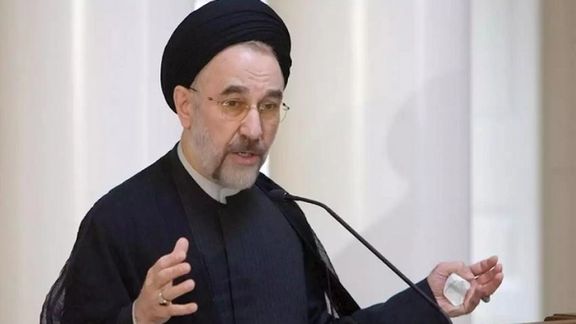
Former President and reform leader Mohammad Khatami says the Iranian regime should acknowledge its mistakes and rectify them; otherwise, it will face destruction.
According to Rouydad24, Khatami made this assertion during a meeting with former Islamist political prisoners. He added that "with this system of government, Islam, Iran and the Iranian people are likely to sustain irreparable losses."
Khatami advised Iran's reformists to "stand by the people and try to understand their problems and simultaneously convey to the government that it is treating the people poorly."
Praising the Iranian middle class as the driving force of the country, Khatami noted that the current government has pushed the middle class into the underprivileged strata of the society. He further mentioned that a portion of the Iranian middle class has emigrated, while those who remain are grappling with various issues.
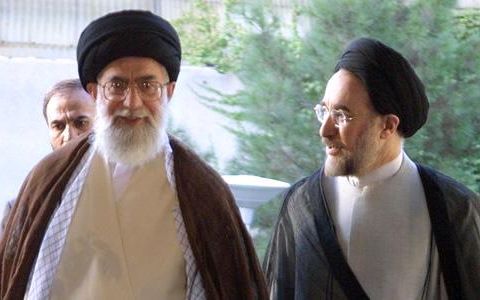
Expressing his frustration, Khatami stated, "The people are not slaves. Entrust political power to someone capable of addressing people's needs and responding to their demands. And if you plan to exert force openly, do not do so in the name of Islam." This marks one of Khatami's harshest criticisms of the system's inefficiency.
Khatami also remarked that the Islamic Revolution aimed to establish a republic akin to those in the rest of the world, aiming to eliminate backwardness, exploitation, and colonialism. These were the people's demands since the 1906 constitutional revolution, he noted. Khatami further added that the people would not have voted for the Islamic Republic in 1979 had they known this system would reject their vote, rule, and parliament.
Regarding the Iranian rulers' interpretation of Islam, Khatami stated it is incompatible with democracy and has led to various inefficiencies. He elaborated, "The Assembly of Experts was designed to appoint and dismiss the Supreme Leader and oversee their performance, and the Guardian Council was established to safeguard against misuse of people's votes. However, they were not meant to make decisions for the people."

Khatami clarified that he is not against the Islamic Revolution or the Islamic Republic but reiterated that the latter should rectify itself to become a government that promotes welfare and justice. He underscored that Iran currently lacks "good governance."
Meanwhile, in an interview with Agahi Now magazine, the former leader of Iran's Reform Front Behzad Nabavi also expressed his support for the regime by stating "We do not intend to destroy the structure of the regime. He added that Khatami speaks about politics based on contemporary requirements, while noting, "I expressed different views and faced harsh criticism from the public." He mentioned that during last year's protests, people no longer even listened to former Prime Minister Mir Hossein Mousavi, who was once revered.
Millions of disgruntled Iranians who protest in the streets or form “the silent majority” have lost trust in the regime as a whole, including reformists who are still loyal to the system after trying for more than a quarter of a century to make it more rational and democratic.
Although the interview was also published by several online media outlets, portions that were missed or deliberately overlooked by Iranian websites emerged on social media. According to some social media accounts, Nabavi criticized the election of Azar Mansouri, a woman, as the leader of the Reform Front stating, "Electing a woman to this position is unlikely to attract young Iranians to the reform camp.”
Referring to the impact of the 2022 protests on reformists, Nabavi said, "During the protests, some reformists concluded that the situation was evolving and attempted to prepare themselves for the next step by critiquing the system. However, he noted, "No one listens to reformists anymore, even those who have novel ideas."

A former Iranian Oil Company official stressed Tehran's dependence on China's oil market citing global reluctance due to US sanction to import energy from Iran.
Mohsen Qamsari, during an exclusive interview with the Iranian Labour News Agency (ILNA), shed light on Iran's plans to bolster its oil production and exports in light of the declining trajectory of Saudi Arabia's oil exports.
He underscored the aspiration to achieve a daily production level of 3.4 million barrels, although he lamented the limited export opportunities beyond the Chinese market. Qamsari stated that Saudi Arabia's export reduction is insufficient to create a substantive opening for Iran's oil exports. He also argued that Saudi shipments fluctuate seasonally.
In the context of Iran's oil market dynamics, Qamsari illuminated Russia's perception of Iran as a competitor, exemplified by its decade-long actions aimed at diminishing Iran's presence in the oil markets. This competitive environment also endures regarding China. The proximity of Russia to China, fortified by a pipeline facilitating Russian oil exports to China, further exacerbates the challenge for Iran in the Chinese market.
Iran's oil minister recently announced a projection of reaching a daily crude oil output of 3.4 million barrels by the end of September, despite ongoing US sanctions.
TankerTrackers.com has reported that in the initial 20 days of August, Iran dispatched an average of over two million barrels of oil daily, marking a more than 30-percent surge compared to the past few months.
The renewed growth in production and exports coincides with an agreement permitting the release of $6 billion of Iranian funds frozen in South Korean banks, potentially indicative of broader diplomatic dealings beyond the public eye.






